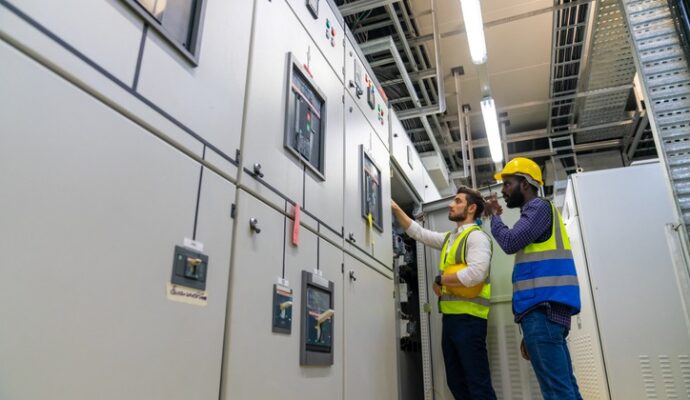Ever walked past a beautifully maintained property and wondered how it stays in such good shape? The secret is often in the management. Excellent property management hinges on effective communication. It’s the glue that binds property managers, tenants, contractors, and sometimes even neighbors. Whether you’re a property owner, manager, or tenant, understanding and embracing strategic communication can make all the difference. Let’s explore why communication forms the backbone of successful property management.
Why Communication Matters in Property Management
Communication isn’t just about talking; it’s about listening, understanding, and acting on the information shared. Property management involves various stakeholders, each with unique needs and expectations. Here’s why communication is crucial:
-
Conflict Resolution: Clear communication reduces misunderstandings and finds solutions faster.
-
Tenant Satisfaction: Regular updates and timely responses to maintenance requests enhance tenant contentment.
-
Efficient Operations: Streamlined communication with contractors ensures jobs are done efficiently and on time.
Building Strong Tenant Relationships
Tenant relationships are the heart of any property management system. The happier the tenants, the smoother the management process. Establishing a line of regular communication, whether it’s monthly newsletters or online portals, can help tenants feel valued and heard. This not only increases tenant retention but also enhances the property’s reputation over time.
Clear Leases and Agreements
Leases and agreements are crucial in defining the terms between tenants and landlords. Ensure these documents are clear and well-communicated to avoid potential disputes down the line. Including detailed clauses about property upkeep, rental payments, and other responsibilities ensures everyone knows what is expected of them.
Navigating Maintenance and Repairs
Maintenance and repairs are inevitable in property management. By establishing an effective communication system, property managers ensure that issues are reported and dealt with promptly, preventing small problems from becoming major headaches.
The Role of Technology in Enhancing Communication
With the advent of technology, property management has become more efficient. Property management software, emails, and other tech platforms can help track tenant requests, communicate inspection schedules, and even manage rental payments. This digital shift is streamlining operations and facilitating smoother communications.
Educating Tenants and Owners
Education is a two-way street in property management. Tenants need to be educated about property rules, but property owners and managers should also be open to learning from tenant feedback. By fostering an environment where sharing knowledge is encouraged, everyone benefits in the long run.
Handling Tenant Complaints with Care
Dealing with tenant complaints is a key part of effective property management. Listening actively to tenant concerns and addressing them promptly helps build trust. Regular feedback loops can also help proactively identify issues before they escalate.
Creating a Community Feel
Successful property management often involves creating a sense of community among tenants. Hosting community events or having a community board for announcements can boost engagement and make tenants feel more invested in their living environment. This encourages them to take better care of the property, too.
Integrating Communication into Financial Management
Managing finances is another critical aspect of property management. Open lines of communication about rental property finances ensure transparency and build trust between tenants and management. Discussing budget constraints and explaining cost breakdowns can also foster understanding and cooperation.
Marketing and Communication
Good communication is also vital when it comes to marketing properties. Clear advertising, honest descriptions, and prompt communication during the inquiry phase can set the stage for a successful tenant-landlord relationship from the start.
Collaboration with Contractors and Service Providers
Property management requires collaboration with various service providers. Clear communication ensures jobs are completed efficiently, reflecting well on the property and making management easier.
The Importance of Feedback
Feedback from both tenants and contractors is invaluable. Gathering insights through surveys or informal chats can provide crucial information about areas of improvement. Implementing feedback effectively can significantly enhance property management processes.
Investment Management and Strategic Communication
In topics such as investment management Broomfield, communication ensures all stakeholders understand the property’s financial goals and strategies. Regular updates and reports can assist property managers in aligning operations with overarching investment objectives.
Balancing Communication Across Multiple Properties
If you’re managing multiple properties, keeping communication consistent and organized becomes even more crucial. Building a robust system, possibly with the help of technology, can ensure that no important message slips through the cracks.
Legal Considerations in Property Communication
Staying within legal boundaries while communicating is essential. Ensuring that all communications, especially regarding leases and agreements, comply with local laws protects both tenants and property managers from potential disputes.
Creating a Comprehensive Communication Plan
Having a go-to communication plan in place can be a lifesaver. Mapping out different communication scenarios and establishing guidelines on how they’ll be addressed ensures preparedness for any situation arising within property management.
Assessing Communication Channels
Property management professionals should regularly assess the effectiveness of current communication channels. Are emails being opened? Are messages via tenant portals reaching their intended audience? Analyzing these aspects can highlight what’s working and areas that need revisiting.
Meeting Diverse Tenant Needs Through Communication
In property management in Boulder, meeting diverse tenant needs through effective communication is essential. Ensuring communication is inclusive and caters to varied tenant needs can make a significant difference. This might mean offering multilingual communications or considering special needs, ensuring everyone receives and understands messages.
Adding a Human Touch to Digital Communications
As much as technology aids in ease, a human touch goes a long way. Automated systems can sometimes feel impersonal. Incorporating personalized messages or checking in with tenants occasionally adds warmth and fosters better relationships.
Conflict Prevention Through Preemptive Communication
Communication isn’t just about resolving conflicts; it’s about preventing them. By regularly engaging with tenants and team members, potential issues can be spotted and addressed before they escalate, ensuring smoother property management processes.
Crisis Management with Effective Communication
Crisis situations, whether natural disasters or unforeseen repairs require strong communication practices. Ensuring tenants are informed and kept updated during crises reinforces trust and minimizes panic.
Continuous Learning for Effective Communication
Engaging in workshops and training on effective communication can greatly benefit property management teams. As technology and social expectations evolve, staying updated with modern communication strategies can set property managers apart from the competition.
Final Thoughts
In conclusion, effective communication is the driving force behind successful property management. Good communication practices lead the way in maintaining tenant satisfaction, ensuring smooth operations, and effectively managing rental property finances. By fostering transparent, inclusive, and responsive communication systems, property managers can lay the groundwork for harmonious and successful property environments.




